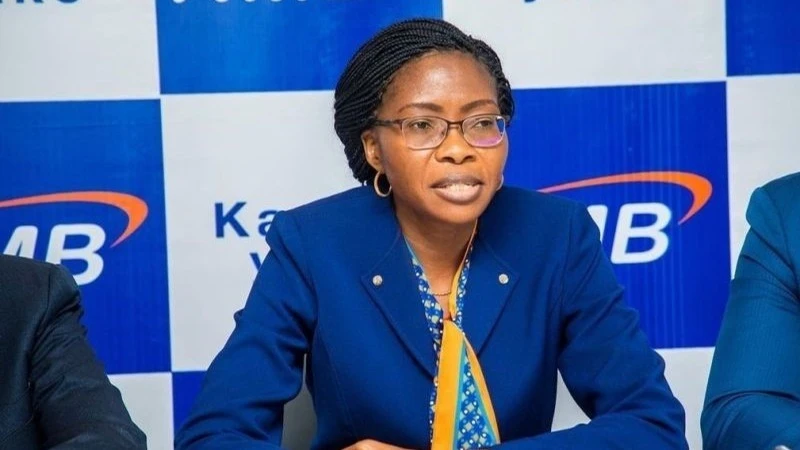
By Guardian Reporter , The Guardian
NMB Bank yesterday detailed its impactful investment in national building efforts by depicting how it bankrolls sectoral growth, funds social welfare supports the government’s fiscal initiatives, and participates in advancing inclusive finance.
The lender’s catalytic financing of the socio-economic development agenda in the country was outlined at the three-day 38th annual meeting of the Association of Local Authorities Tanzania in Zanzibar by Chief Executive Officer, Ruth Zaipuna.
The seasoned banker said the monumental contribution to bettering lives and aiding wealth generation would be impossible without endorsement of the government which NMB works closely with in many development facets at all levels.
“NMB Bank has partnered with the government to invest in strategic sectors, including agriculture which by last year we had financed by 1.6trn/- of which 400bn/- were soft loans extended at the interest rate of nine per cent,” she told the over 500 delegates of the congress.
Zaipuna said the lender’s constructive engagements in national development also include the huge corporate social investments it makes to support communities, citing the 8bn/- set aside for 2024.
Out of that, she explained, 2.5bn/- will be used to build a special school in Dodoma and the remaining amount will be invested in the priority sectors of the bank’s corporate giving policy, notably education, health, and entrepreneurship.
The NMB leader also said that the bank’s other recent major corporate philanthropy undertaking has been the Nuru Yangu Scholarship and Mentorship programme, which to date has provided scholarships to 130 bright college students hailing from poor families.
On the financial inclusion front, Zaipuna said, NMB continues relentlessly to include Tanzanians, especially those living upcountry into the formal financial sector and has recently debuted a special village banking strategy for them.
“NMB continues to take its services closer to the people and this year we launched a grand village banking scheme targeting to cover more than 1,000 villages without access to formal financial services, which initially will be served by agents,” she noted in her remarks.
Implementation of the strategy has included the use of the revolutionary NMB Pesa Account service, which Ms Zaipuna said has been enthusiastically received in the market for making banking a stress-free exercise.
According to her, the popularity of the highly innovative product includes its opening digitally at only 1,000/- and fetching no monthly charges that were formerly putting off many ordinary folks from opening and owning bank accounts.
The other major merit of the account is its instant connection to NMB Mkononi which enables customers to access up to 500,000/- unsecured Mshiko Fasta digital loans without visiting an NMB branch.
“Since we officially launched it about two months ago, we have been able to open over 100,000 NMB Pesa accounts and the target is to open over 1.5 million new accounts by the end of this year,” Zaipuna pointed out.
Attainment of the goal and accomplishing the noble village banking mission, she explained, is pegged on increasing the number of agents who have now increased to 34,000 across the country compared to only 10,000 in 2021.
Come 2026, the lender expects this alternative banking channel and pillar of financial inclusion to comprise over 50,000 wakala.
Zaipuna lauded the government for putting in place a supportive business environment that has enabled it to continue excelling in the market, paying the rightful taxes and making mouthwatering dividend payouts to shareholders including the government.
“It is for that reason the Tanzania Revenue Authority has for the last two consecutive years recognized NMB Bank as the largest and most compliant taxpayer in the country,” she stated.
In his remarks to officiate the opening of the congress, the Minister of State in the President's Office, Regional Administration and Local Government, Mr Mohamed Mchengerwa, called for stakeholders’ close collaboration in the fiscal space due to the pivotal role of taxes in financing development and delivering quality services.
The cabinet minister who represented President Dr Samia Suluhu Hassan challenged LGAs to set realistic revenue targets and employ creative measures in collecting the tax incomes




No comments :
Post a Comment